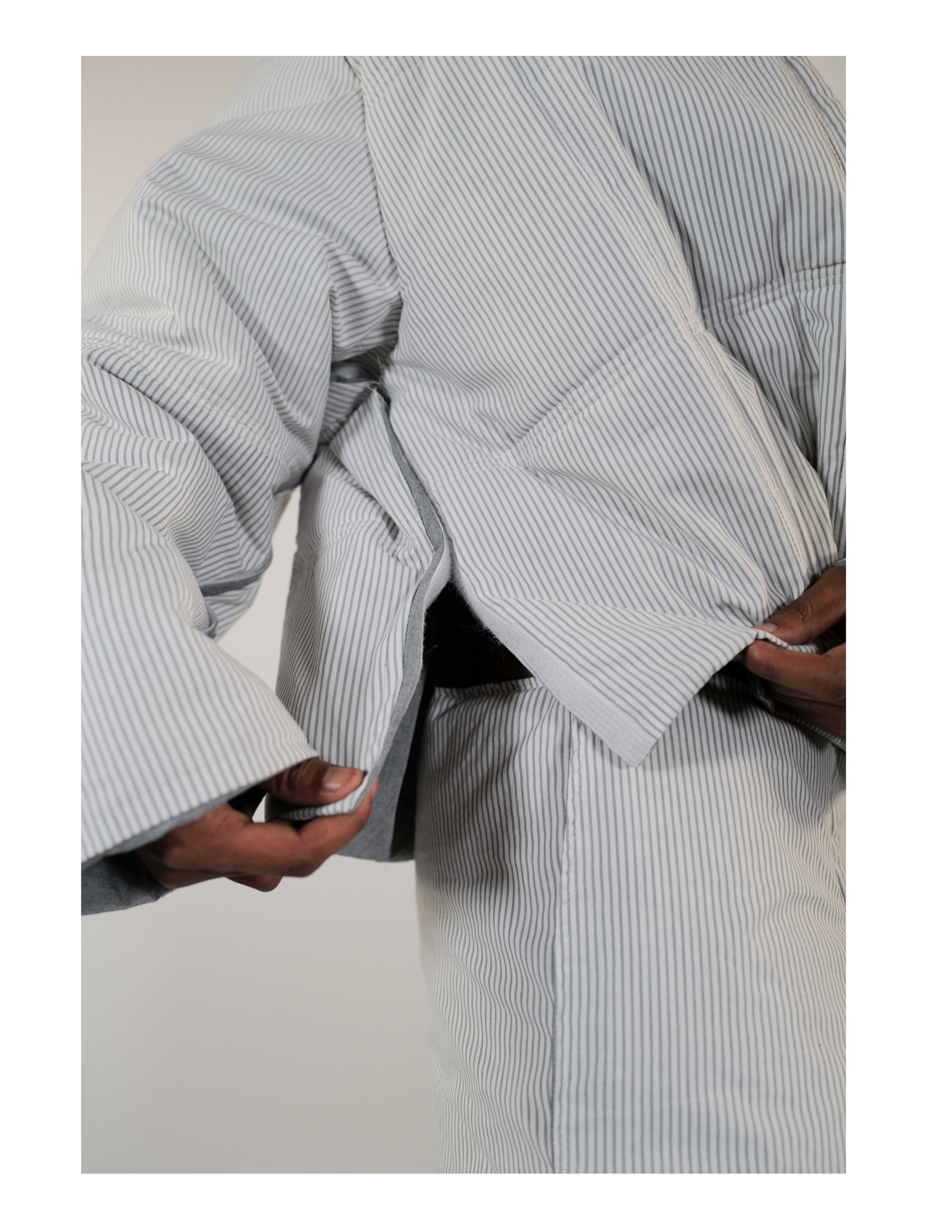Modul, A Modular Fashion System / 2023 CFDA + Swarovski Re: Generation Innovation Scholarship Recipient
In the project titled "Modul," the goal is to revolutionize the fashion industry by introducing a sustainable and adaptable fashion system that challenges conventional dressing approaches. Drawing inspiration from upholstery, the concept behind this endeavor is to provide garments with an external casing, similar to a pillowcase, resulting in a modular fashion system known as the "pillowcase concept." This system allows for the interchangeability and customization of garments.
The primary focus is on developing a line of padded bases that can be paired with various interchangeable cases, offering different fabrics, colors, and design details. This approach to fashion aims to create a more versatile and flexible wardrobe, with options suitable for different seasons and occasions.
The driving force behind this concept is a desire to address the issues of overconsumption and waste prevalent in the fashion industry. By establishing a modular and sustainable fashion system, the objective is to challenge conventional norms and provide an innovative and eco-friendly solution. This project seeks to redefine fashion, making it more adaptable and environmentally responsible.
United Nations Sustainability Development Goals:
Modul's primary mission aligns with the United Nations' Sustainable Development Goal of Responsible Consumption and Production. Our core objective challenges the established patterns of consumption and production deeply rooted within the fashion industry. Through our innovative modular system, Modul encourages consumers to rethink their consumption practices and the industry's manufacturing methods. By addressing unsustainable consumption patterns, we aim to contribute to broader UN goals and combat environmental challenges stemming from the fast-paced fashion sector. Our goal is to engineer garments for year-round use and modular interchangeability, significantly reducing fashion-related waste and consumption. Instead of discarding entire garments, individuals can recycle their old casings and replace them with new ones, promoting sustainability. Additionally, Modul collaborates with eco-conscious partners such as The New Denim Project, EcoNyl, and ThinDown Fabric to ensure responsible and eco-friendly production practices.
Modul's innovative approach to fashion consumption and production plays a pivotal role in reshaping the fashion industry's impact on climate change. The fashion sector is a major contributor to greenhouse gas emissions, particularly during textile production, garment manufacturing, and printing processes. In contrast, Modul focuses on creating a versatile wardrobe that promotes sustainable interchangeability throughout the year, reducing the need for large-scale, seasonal production.
Modul dedicates itself to conserving terrestrial and aquatic ecosystems. We achieve this by reducing production rates and adopting environmentally responsible fabrication techniques to alleviate the detrimental effects associated with the fashion industry. Conventional methods of fabric dyeing and cotton farming heavily rely on pesticides and fertilizers, causing water and soil contamination. However, Modul places a premium on recycled denim sourced from The New Denim Project, safeguarding wildlife and human health while mitigating issues like soil erosion, nutrient depletion, and reduced fertility that often accompany conventional cotton farming.
Modul's unwavering commitment extends to ocean preservation. We address the alarming waste ending up in landfills by opposing overconsumption in fast fashion. Synthetic fibers, known to take centuries to decompose, release greenhouse gases during decomposition, contributing to climate change and environmental harm. Furthermore, through our partnership with EcoNyl, Modul combats the pervasive pollution caused by human-generated plastic in our oceans. EcoNyl transforms waste materials, including ocean-recovered plastic and scrap fabrics, into recycled nylon. By minimizing the fashion industry's impact on water bodies and marine life, Modul plays a critical role in preserving life on both land and in the oceans that surround us.
Special Thanks to:
Modeling: Jose Harmon
Photography and Lighting: Theo Rousselet
Photoshoot Assistance: Ray Zhang, Marco Signor
The Council of Fashion Designer of America (CFDA)
The Swarovski Foundation
https://cfda.com/education/cfdascholarshipfund/regenerationinnovationscholaraward













